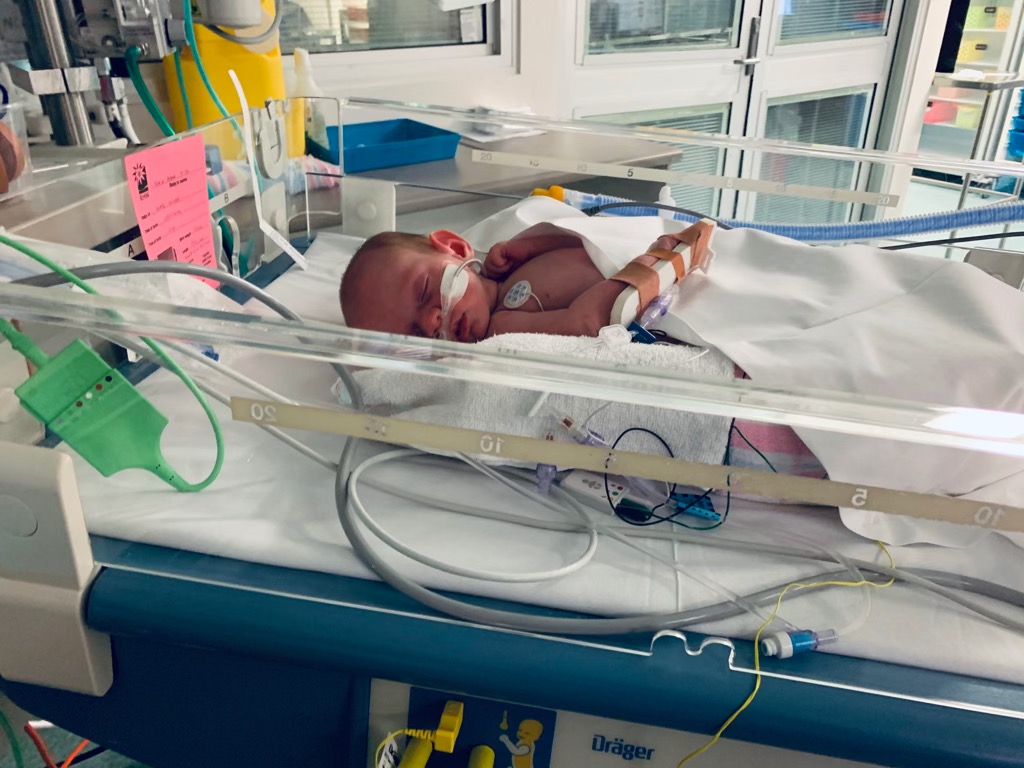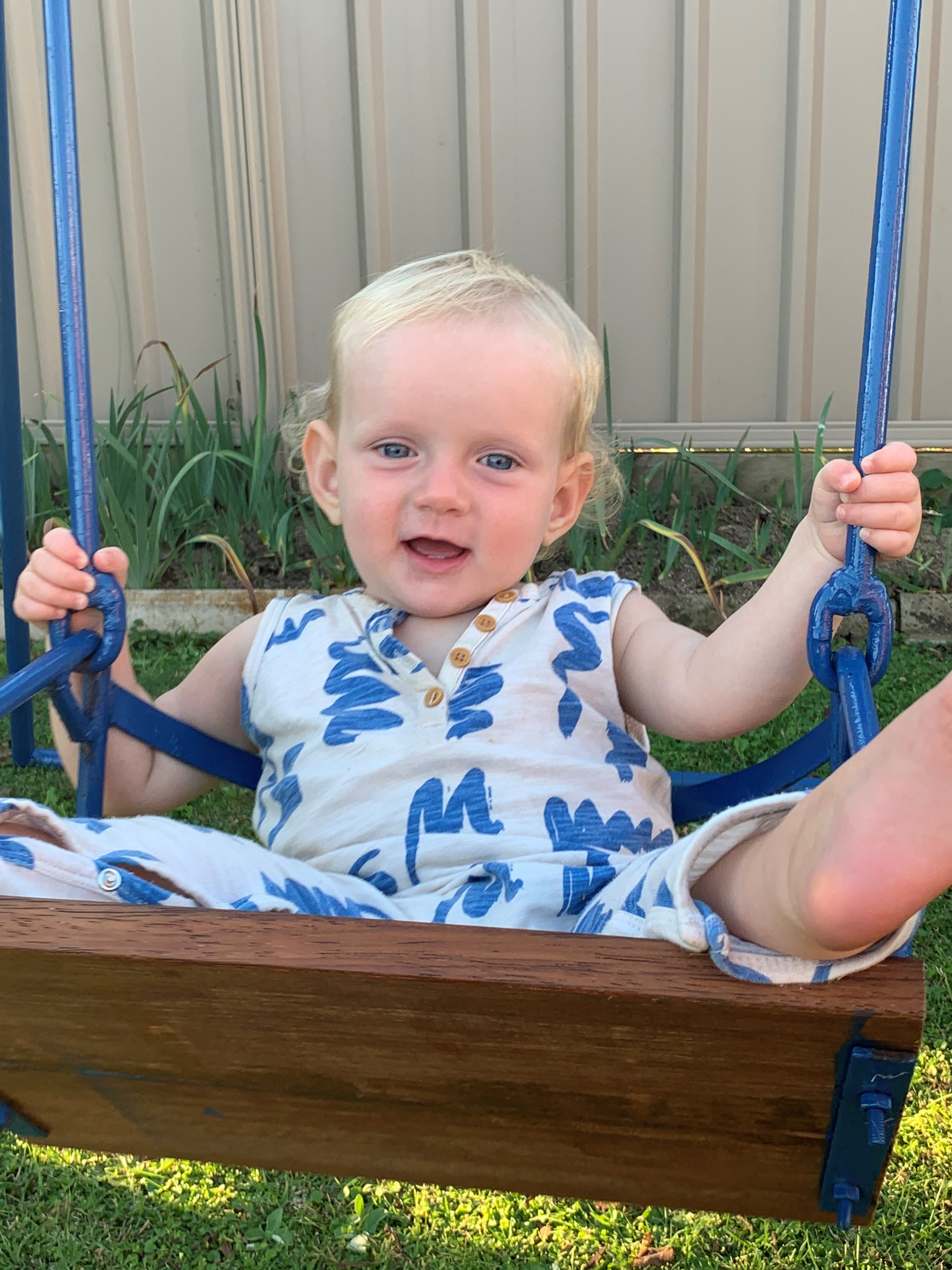The one in 60,000 rare disease that impacts Sofia
18-month-old Sofia is now a happy and cheeky baby who loves cuddles. However, for first-time parents Kate and Jonathon, the newborn bubble was quickly burst when they realised something wasn’t quite right with their daughter. At first, family and friends expressed how lucky they were that they had a newborn that didn’t cry and would sleep through the night. But a few days after being home, their midwife raised the alarm – something was wrong with Sofia.
Rushing to Sydney Children’s Hospital, Randwick, Sofia was taken away for an MRI which showed a black spot on the brain that at first appeared like cerebral palsy.
After further investigation and rapid genome testing, Sofia was diagnosed with a rare disorder called Non-ketotic Hyperglycinemia (NKH). NKH is an extremely rare metabolic disorder caused by a defect in the enzyme system that breaks down in the amino acid glycine, resulting in an accumulation of glycine in the body’s tissues and fluids. It affects just one in 60,000 babies and if left untreated, it can lead to severe epilepsy and delay a child’s development.

This diagnosis came as a complete shock to Sofia’s family as all tests throughout Kate’s pregnancy came back clear. While there are different forms of the condition, Sofia was diagnosed with the most severe. Following her diagnosis, Sofia was introduced to the Genetic Metabolic team at The Children’s Hospital at Westmead, who collaborated with her medical team at Sydney Children’s Hospital, Randwick to manage her ongoing care.
Dr Kaustuv Bhattacharya, Sofia’s Metabolics Specialist says genetic testing was crucial in confirming Sofia’s condition and is something that has come a long way over the years, saving thousands of young lives.
“There were 10 to 15 possible outcomes, so we ran fast-track genetic testing so her results could be available within five days. It gave us a clear diagnosis and allowed us to be certain in our treatment strategy for Sofia,” explained Dr Bhattacharya.
“If we had done the same test 2-3 years ago, it would have taken a few months to get the results and her condition could progressively get worse without treatment. For a child with Sofia’s condition, every minute counts.”
Sofia was started on her management plan almost immediately. This involves ingesting a food additive that is dissolved in water and is fed to her via a syringe that she drinks. This food additive clumps up the glycine and allows her to urinate it out.
She also relies on various medical experts across both of Sydney’s children’s hospitals including the genetic, metabolic and the neurology teams who monitor her progress. They have all become a routine part of the family's lives.
With this ongoing management, Sofia has avoided almost all of the effects of her condition and can live like a normal toddler. Incredibly, she hasn’t experienced any developmental delay and is meeting all of her milestones.

Kate and Jonathon are sharing their story to help encourage NSW to unite and donate to the Light Up Xmas Appeal. “When you go through an experience like that, you sometimes think that it could’ve been a different story. We are just beyond grateful that Sofia is here with us today. We can’t thank Sofia’s medical teams enough who guided us from the very beginning,” added Johnathon, Sofia’s dad. “You donate because you hope you don’t need to use those services but when you are in that situation, you are so grateful for those donations and the support you’re given. Without the care we received from the hospital, we might be telling a different story today.”
You can help give sick kids just like Sofia a brighter Christmas by supporting the Light Up Xmas Appeal. Donate today: schf.org.au